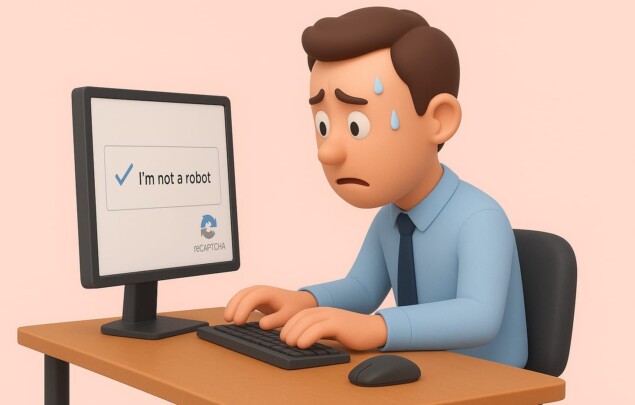Why Google reCAPTCHA is breaking your forms
Find out why reCAPTCHA spam protection may be breaking your contact forms

Create a tailored Privacy Policy, Terms & more in under 5 minutes.

The Kids Online Safety Act (KOSA) represents a step forward in protecting children from online risks. Children’s lives are increasingly intertwined with the internet, KOSA seeks to impose new safety obligations on online platforms to prevent harm and protect minors from dangerous online content. Since its introduction in 2022, the bill has garnered widespread support as well as criticism, reflecting the complexity of regulating the digital space for younger users.
In this article, we’ll explore the key aspects of KOSA, including its purpose, who it applies to, its requirements, and its broader implications for both children and the tech industry.
Generate your own Privacy Policy in under 5 minutes
Get StartedThe Kids Online Safety Act (KOSA) is federal legislation aimed at protecting children and minors from harmful online experiences. Introduced in 2022 by Senators Marsha Blackburn and Richard Blumenthal, KOSA was drafted in response to mounting concerns about the impact of unregulated online platforms on children’s well-being. This includes threats such as:
KOSA requires online platforms to take proactive steps to reduce children’s exposure to harmful content and mitigate any negative effects on their health and development.
The last major legislative effort to protect children online occurred with the Children’s Online Privacy Protection Act (COPPA) in 1998—long before the rise of platforms like Facebook, Instagram, or TikTok. Over time, with children becoming avid users of these platforms, a renewed focus on child safety became imperative.
KOSA was introduced in 2022 after various congressional hearings highlighted the detrimental effects of social media, online gaming, and other platforms on children’s mental and emotional health. It has since undergone several amendments, notably in February 2024, to address concerns raised by civil rights groups, tech companies, and child advocacy organizations. As of September 2024, KOSA has passed the Senate and is awaiting a vote in the House of Representatives.
KOSA introduces several important measures designed to protect minors from harm online. Below are some of the bill’s primary provisions:
KOSA applies to a broad range of “covered platforms” — online services and websites that are likely to be used by minors. This includes social media networks, online gaming platforms, messaging apps, and video streaming services. Essentially, any platform that connects to the internet and is accessible by children falls under KOSA’s jurisdiction.
Enforcement of KOSA will largely fall to the Federal Trade Commission (FTC), which will oversee compliance with the law. Additionally, state attorneys general will be empowered to enforce certain provisions of the law, though they will not be able to enforce the “duty of care” clause due to concerns about misuse and censorship.
Critics initially expressed concerns that state attorneys could use KOSA to suppress content related to sensitive topics, such as LGBTQ+ rights or reproductive health. However, revisions to the bill have addressed many of these issues, and major LGBTQ+ groups have since dropped their opposition to the legislation.
Supporters
KOSA has received strong backing from a wide array of groups, including:
Advocates argue that KOSA is an essential first step in holding tech companies accountable for the role they play in endangering children’s mental and emotional health.
Opposition
On the other hand, free speech advocates, such as the ACLU and Electronic Frontier Foundation (EFF), have voiced concerns that KOSA could infringe on the First Amendment. They worry that platforms might censor important information out of fear of violating the law, potentially harming marginalized groups or limiting access to resources for sensitive topics like LGBTQ+ issues and mental health.
KOSA’s future now lies in the hands of the House of Representatives, where it awaits a vote. House Speaker Mike Johnson has been non-committal but expressed a desire to find consensus. If passed by the House, President Biden has indicated he will sign the bill into law.
The Kids Online Safety Act (KOSA) represents a significant change in how the U.S. addresses children’s safety online. By imposing a duty of care on platforms, restricting addictive design elements, and offering better safety tools for children and parents, KOSA aims to make the internet a safer place for young users.
However, the debate around censorship and free speech suggests that implementing KOSA will come with its share of challenges. As technology continues to evolve, so too must the laws that govern how children interact with the digital world. KOSA is a critical first step in that direction, though it remains to be seen how effectively it can balance safety and free expression online.
If you want a simple way to manage your compliance with data privacy laws, take a look at our products here at GetTerms. We offer a simple solution that covers your Cookie Consent Management Platform, Cookie Consent Banner, Privacy Policy Generator and Cookie Policy Generator. We also have a number of other document generators for you to take advantage of!
Generate your own Privacy Policy in under 5 minutes
Privacy Policy Generator